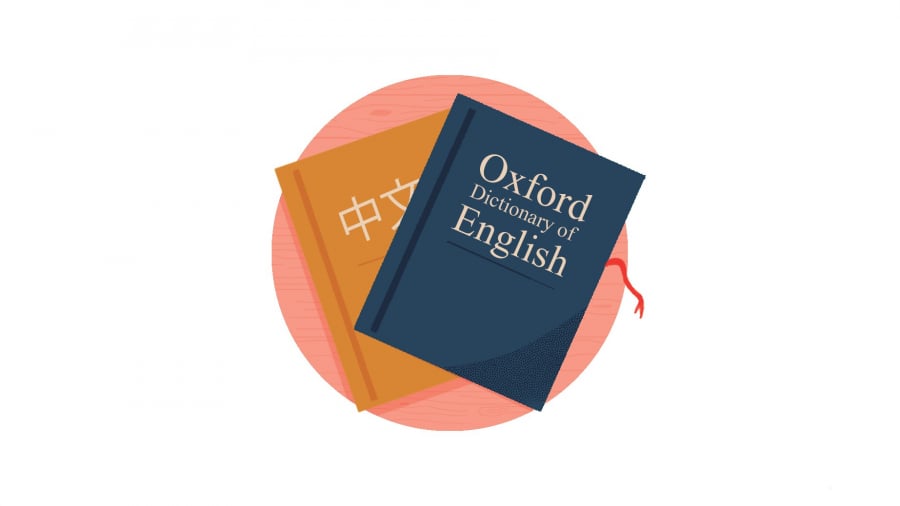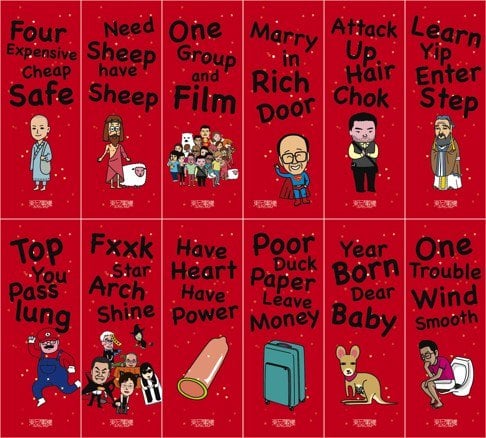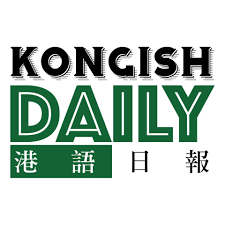In September 2014, downtown Hong Kong experienced an unprecedented standstill. The usual endless flow of traffic was halted by throngs of protesters; the financial district was paralyzed. This was the largest protest in the city's history. The demonstrators, calling for a democratic electoral process, refused to move until Beijing and the local government agreed to implement a new system.
More than just a pro-democracy campaign, this protest was a battle to maintain Hong Kong's distinct identity – one that many locals felt threatened by increasing interference from mainland China. A concrete expression of Hong Kong identity that emerged from these three months of protests is Kongish.

The Kongish language primarily consists of English translations of Cantonese sayings. One of the well-known Kongish idioms is “add oil,” derived from the 加油 (jia yu) expression, which is meant to encourage the strength of the Hong Kong people. This word was included in the 2018 edition of the Oxford Dictionary after its use by young people and participants to encourage each other during the 2014 protests escalated exponentially.

Although Kongish terms have only recently made their way into dictionaries, the language can be traced back to the late 1990s and the early days of the internet.
“Unlike school, where you are forced to write and speak English correctly, the internet has no rules,” said Alfred Tsang, an English lecturer at the Hong Kong University of Science and Technology. “This lack of control has facilitated the rise of Cantonese-English fusion.”
Most people in Hong Kong speak English, so on the internet, they use both languages to express themselves, and that's how Kongish came about. For many, it has become their preferred form of English.
Soft Liu, the lead singer of the indie band GDJYB, who writes lyrics in Kongish, explains: “Kongish means Hong Kong-style English, not necessarily grammatically correct or meaningful to an overseas audience. It’s how Hong Kong people express themselves in everyday life. For example, we text our friends that…”Eat mud tonight?(What should we eat for dinner tonight?)What the hell are you saying?(What the hell are you talking about?) orI Holland like you(I like you a lot.)

Liu says that modern messaging apps like WhatsApp have made many people too lazy to write a complete sentence, and this has contributed to Kongish's popularity. She explains, "For example, if I want to ask my friend..."Do you want to hang out with me tonight?If someone asks, "Would you like to go out with me tonight?", I would text something like this.Tonight, come out?”
The members of GDJYB realized that, beyond being a byproduct of laziness, Kongish had become a badge of identity for the city's growing youth population. “Kongish is a representation of our local culture,” Liu said. “We want to introduce Hong Kong culture to an international audience through our songs, and Kongish is a great vehicle to do that.”
To find further evidence of Kongish's popularity, in August 2015 three local English teachers created "Kongish Daily"—a Facebook page dedicated to collecting examples of the language.

The trio were surprised by the instant popularity of "Kongish Daily." Their first post on Kongish garnered over 10,000 likes overnight, and the page now has nearly 50,000 likes. It has become a leading public platform for the language. Nick Wong Chun, a lecturer at the Language and General Education Centre at Tung Wah University, said, “Before we created this page, it was just language used between people messaging each other on private platforms. I think our page has helped people see that there’s nothing wrong with using Kongish to express ourselves.”
Chun also mentioned "grammar police"—people who criticize others online for writing incorrectly, even in casual conversations. But unlike Chinglish, which is born from unintentional mistakes, Kongish is a deliberate violation of grammatical rules. Pedro Lee Lok-yi, a local English teacher, argues: "People who write Chinglish usually have low English proficiency; they want to write in English but can't due to limited knowledge. With Kongish, they intentionally write English in a way they feel comfortable."
Although some purists object to this type of language because it has the potential to erode English standards, the founders of the "Kongish Daily" countered: "Just because you want to experiment and create a fusion dish doesn't mean you lose the ability to cook a purely Chinese dish or a purely Western dish."

Despite the criticism, Kongish continues to thrive. The three English instructors remain confident about its future: “For us, Kongish is the child of English and Cantonese, so we want to protect it as we protect our mother tongue,” Chun said. “It is an expression of our Hong Kong identity, and I believe it will endure.”

 VI
VI EN
EN

















.jpg.jpg)
.jpg.jpg)





.jpg.jpg)







